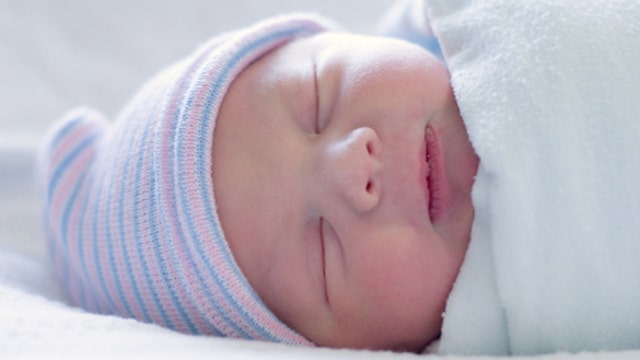Protect your baby this winter
With cold weather upon us, it’s important to be aware of all the illnesses we face in the winter. One common seasonal virus that often goes undetected, but is a serious threat, is respiratory syncytial virus – or RSV
With the winter season upon us, it’s important to be aware of all the illnesses the cold weather brings. Often going undetected, but still a serious threat, is a common seasonal virus called respiratory syncytial virus – or RSV.
RSV is the leading cause of infant hospitalization and affects nearly all babies by age two. The disease is also responsible for one of every 13 pediatrician visits in children under the age of five.
In most healthy babies, RSV presents relatively mild symptoms, and the virus runs its course within two weeks. Certain babies are at an increased risk of developing a serious respiratory infection from RSV, especially babies born prematurely (before 37 weeks gestational age) who have underdeveloped lungs and fewer antibodies to stave off the virus. Other common risk factors include low birth weight (less than 5.5 pounds), chronic lung disease, congenital heart disease or weak immune systems.
Despite being so common, many parents have never heard of RSV. In fact, 1/3 of mothers are unaware of the virus. It’s especially important that parents become educated on the symptoms of RSV and ways to prevent it, because there currently is no treatment for RSV once it is contracted.
RSV symptoms
Symptoms of RSV often mimic the common cold, but parents should seek medical attention if their baby is experiencing persistent coughing or wheezing, bluish color around the lips, difficult or gasping breaths, or fever – especially if it is over 100.4 degrees F in infants under three months of age.
When is “RSV Season?”
RSV season is typically from November through March, but it varies by geography and from year‐to‐year. In some warmer climates, the RSV season may begin as early as June, so ask your pediatrician when RSV is most prevalent in your area.
How can I help protect my baby from RSV?
RSV is very contagious and can be spread easily through touching, sneezing and coughing. Additionally, the virus can live on the skin and surfaces such as countertops, tissues and toys for hours. To help minimize the spread of RSV disease, all parents should:
- Wash their hands and ask others to do the same
- Keep toys, clothes, blanket and sheets clean
- Avoid crowds and other young children during RSV season
- Never let anyone smoke around your baby
- Steer clear of people who are sick or who have recently been sick
To determine if your baby is at a high risk for the RSV disease, you should speak with your child’s pediatrician and find out what additional steps may be recommended. For more information about the risk factors for RSV and for tips on how to talk to your doctor, visit www.RSVprotection.com.
Paul Checchia, M.D., serves as medical director of the Pediatric Cardiovascular Intensive Care Unit at Texas Children’s Hospital in Houston. Additionally, he is professor of pediatric critical care medicine at Baylor College of Medicine. He specializes in critical care of children with heart disease.





















